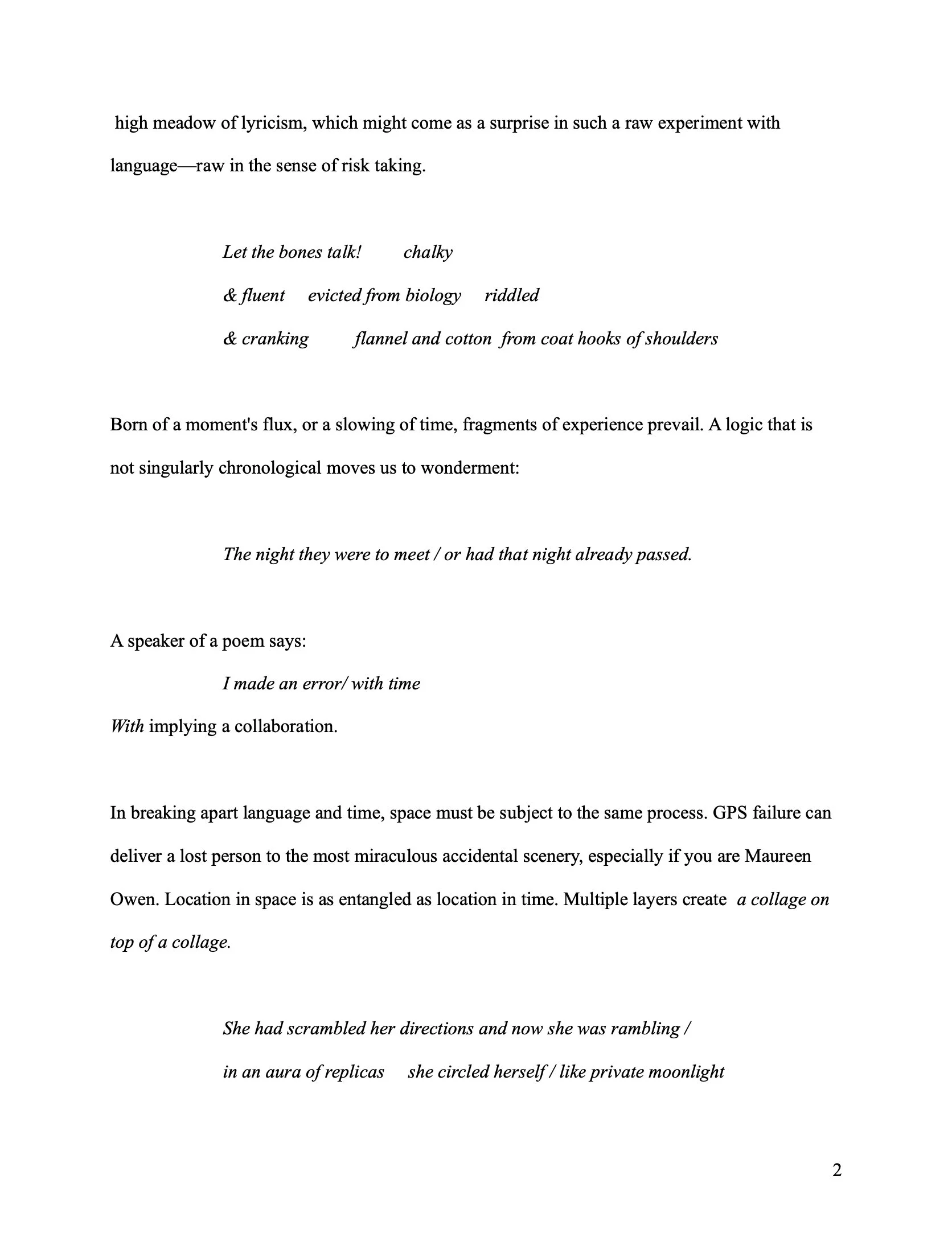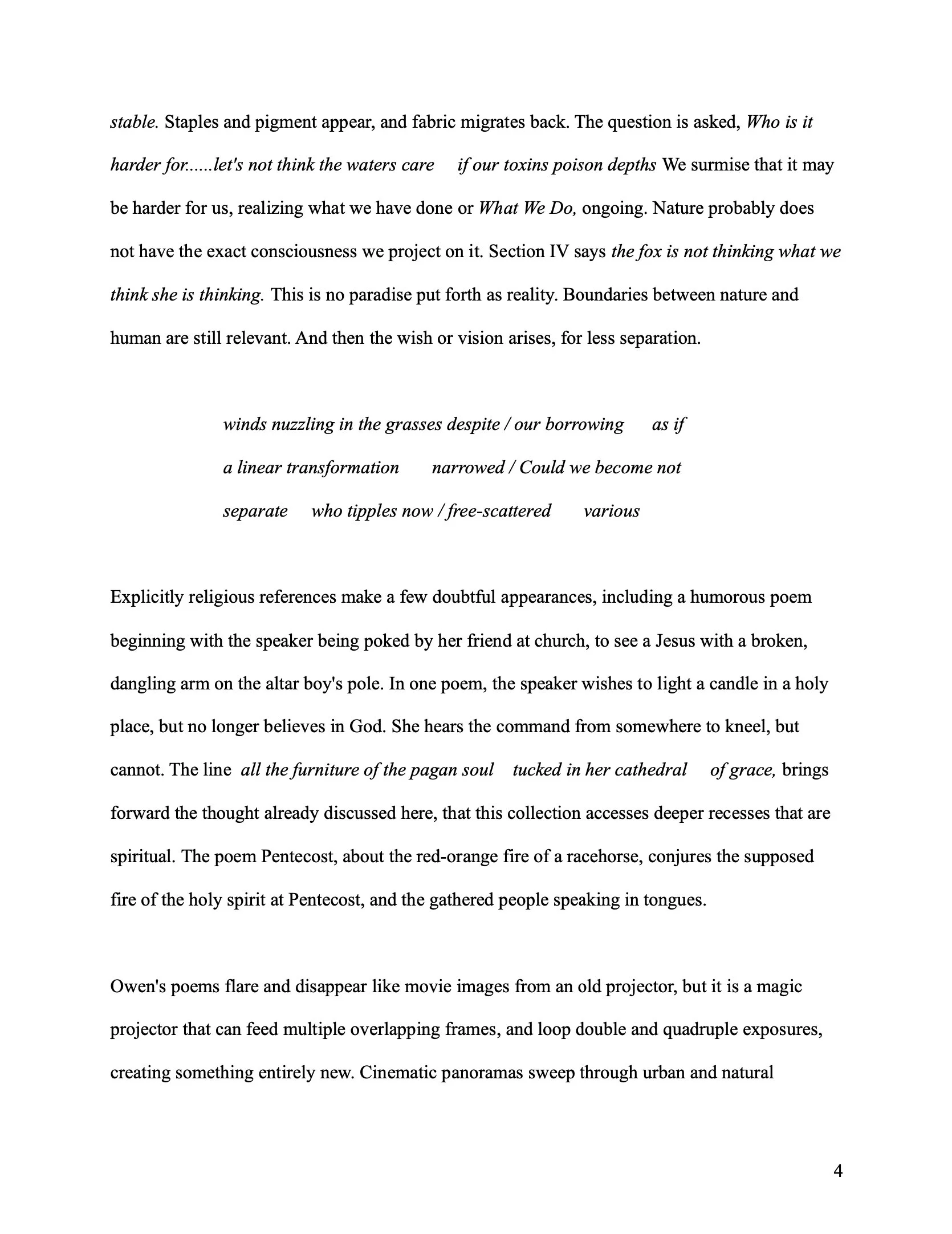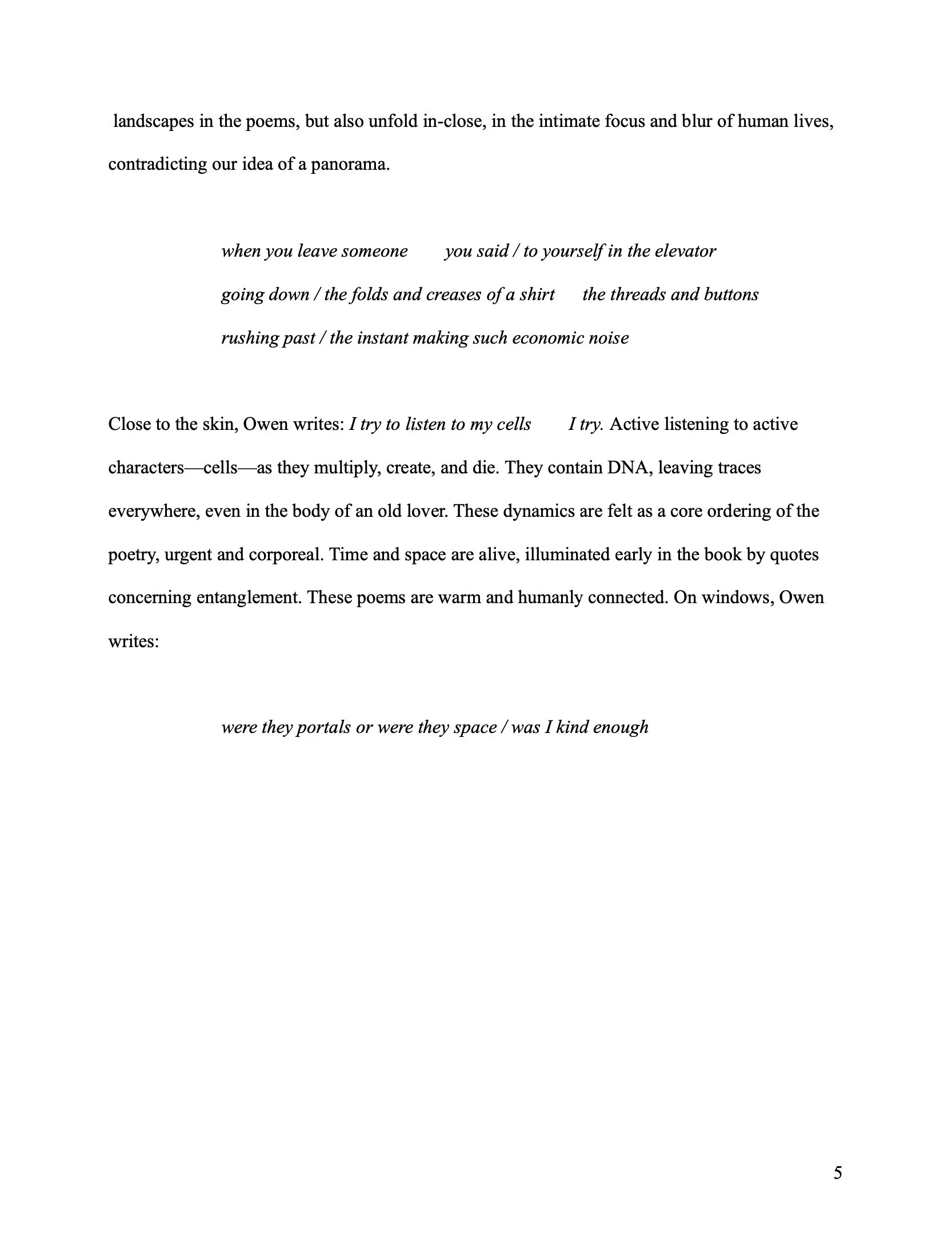Jenny Grassl
Summer 2025 | Prose
Everything Turns on a Delicate Measure by Maureen Owen. (BlazeVOX Books). 2023
Maureen Owen is the former editor and chief of Telephone Magazine and Telephone Books, currently celebrated in a two vol. recap by The Poetry Collection at The University of Buffalo. Her latest title is let the heart hold down the breakage Or the caregiver's log from Hanging Loose Press. Another recent publication is Poets on the Road with Barbara Henning, a collaborative reading tour blog in print from City Point Press. Other books include Edges of Water from Chax Press and Erosion's Pull, a Coffee House Press title that was a finalist for the Colorado Book Award and the Balcones Poetry Prize. Her collection American Rush: Selected Poems was a finalist for the L.A. Times Book Prize and her work AE (Amelia Earhart) was a recipient of the prestigious Before Columbus American Book Award. She has taught at Naropa University, both on campus and in the low-residency MFA Creative Writing Program, and served as editor-in-chief of Naropa’s on-line zine not enough night. She can be found reading her work on the PennSound website.
Jenny Grassl lives in Cambridge, Massachusetts. Her poems have appeared or are forthcoming in: Ocean State Review, Rogue Agent, the Boston Review, Tupelo Quarterly, Bennington Review, Lana Turner Journal, Inverted Syntax, Puerto Del Sol, Massachusetts Review, Heavy Feather Review, and others. Her poetry was featured in a Best of American Poetry blog. Her first book, Magicholia , will be published by 3: A Taos Press in 2024. Her reviews have appeared in Lit Pub, Tupelo Quarterly, and Compulsive Reader.




